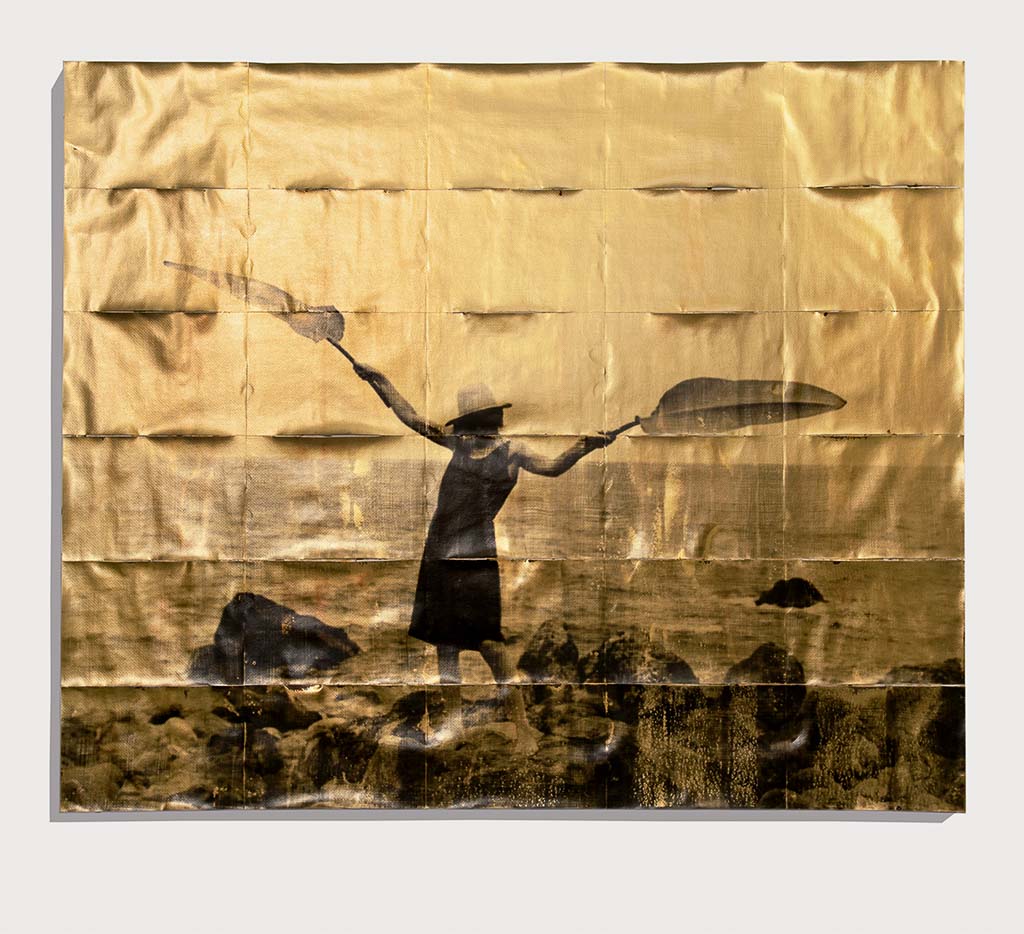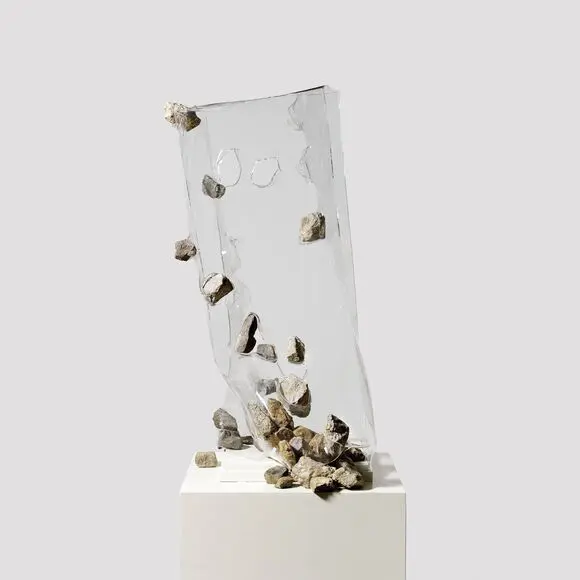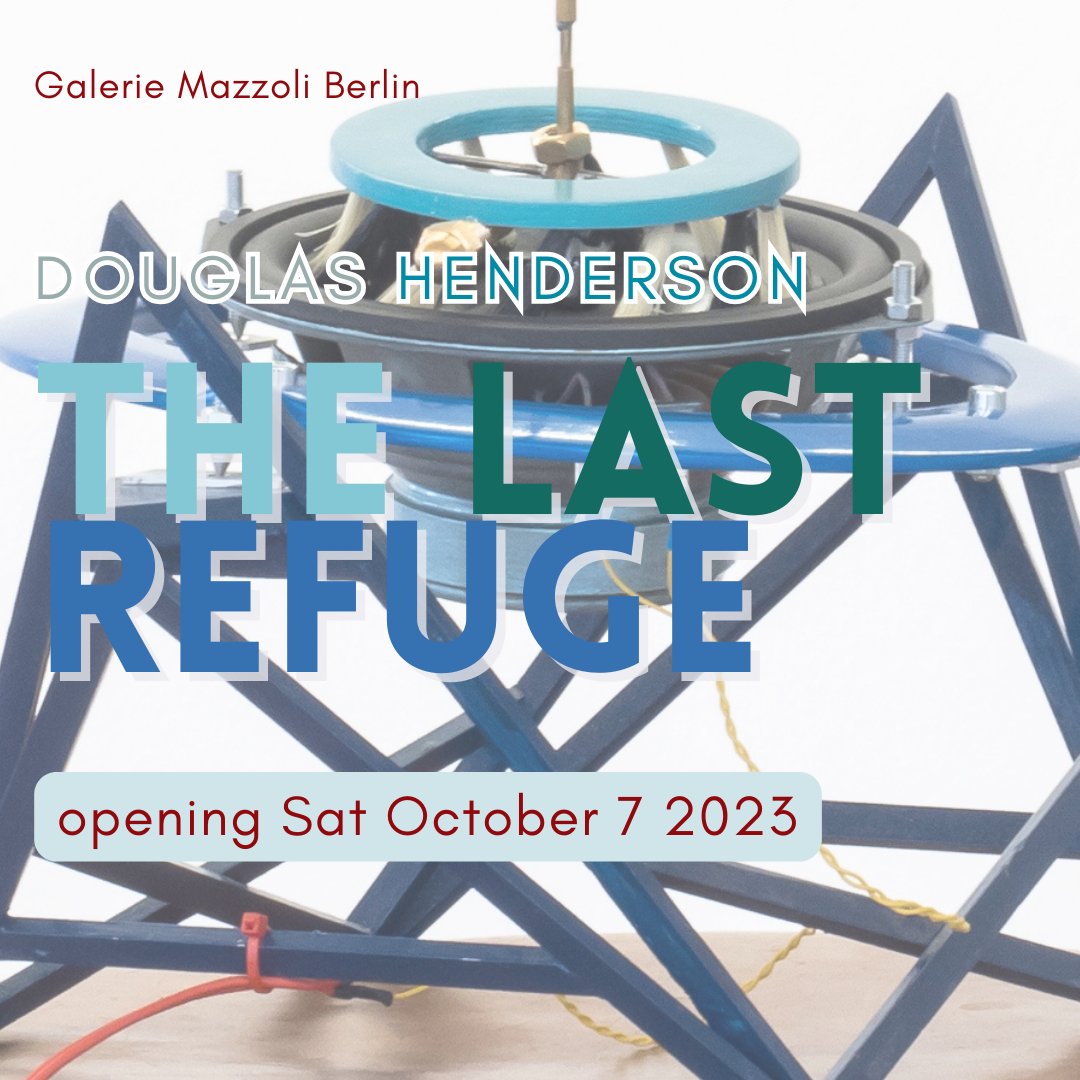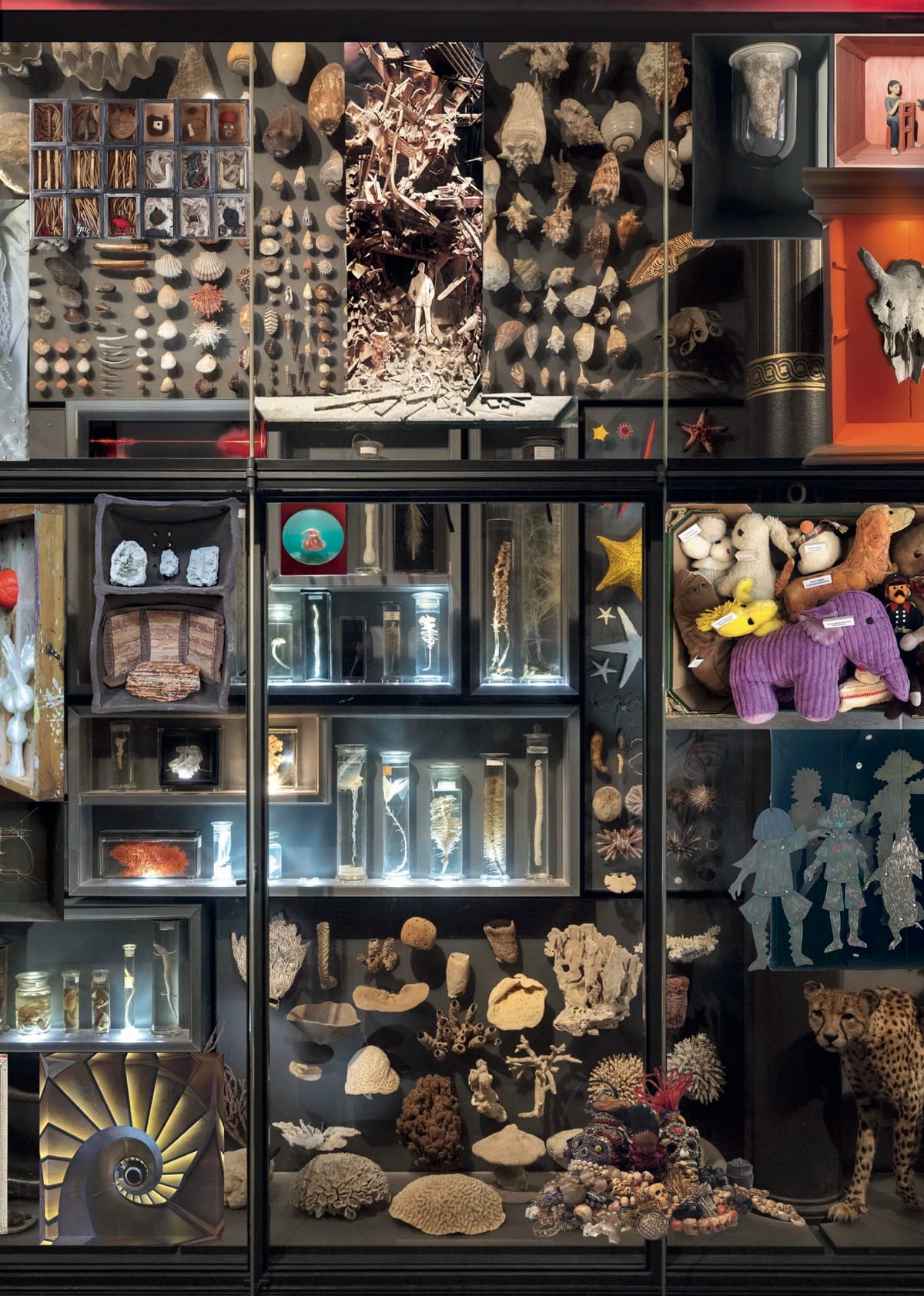Galerie Mazzoli is proud to present “The Last Refuge,” the sixth solo exhibition by Douglas Henderson at its Berlin location.
It is rare to encounter a sound artist who has, as well as being a professionally-trained composer with experience in many sub-genres of electronic music, ventured so deeply and with such formal certainty into the realm of installation art that he can be called a sculptor without any reservations: Douglas Henderson is an exceptional and multi-talented artist, and a true inventor when it comes to the physical generation of phenomena that are simultaneously optical and acoustic. Everything about his objects and installations is immediately visible and audible because his ingenuity lies in revealing phenomena that are easily understood but have simply never been integrated in such a way before, resulting in kinetic works of art that are so astonishing that one can hardly believe what one is seeing and hearing.
The title piece of the exhibition, the installation “The Last Refuge,” features three kinetic objects with three blue flags that twitch and spin atop various pedestals. The mechanics are driven by vibrations from embedded loudspeakers. We hear what seems to be music; harmonies can be perceived. For this piece, the artist sampled a record produced by the United Nations that features 28 different national anthems performed by an orchestra, breaking them down into rather pathetic, unidentifiable sounds. For this mix of anthems paired with waving flags in a United Nations shade of blue, the title “The Last Refuge” refers to a quotation by English writer Samuel Johnson: “Patriotism is the last refuge of the scoundrel.” The three waving flags seem to be in conversation. Their movement is achieved through various means, but primarily with brushes and loudspeakers that set themselves in motion through their own vibrations. Playful and comical, but by no means l’art pour l’art. Here we see Henderson’s enigmatic irony: the funny flags of the installation point to the dark side of a stale internationalism that can potentially be used to hide bad intentions and particularistic, nationalistic ideas.
Martin Schick







